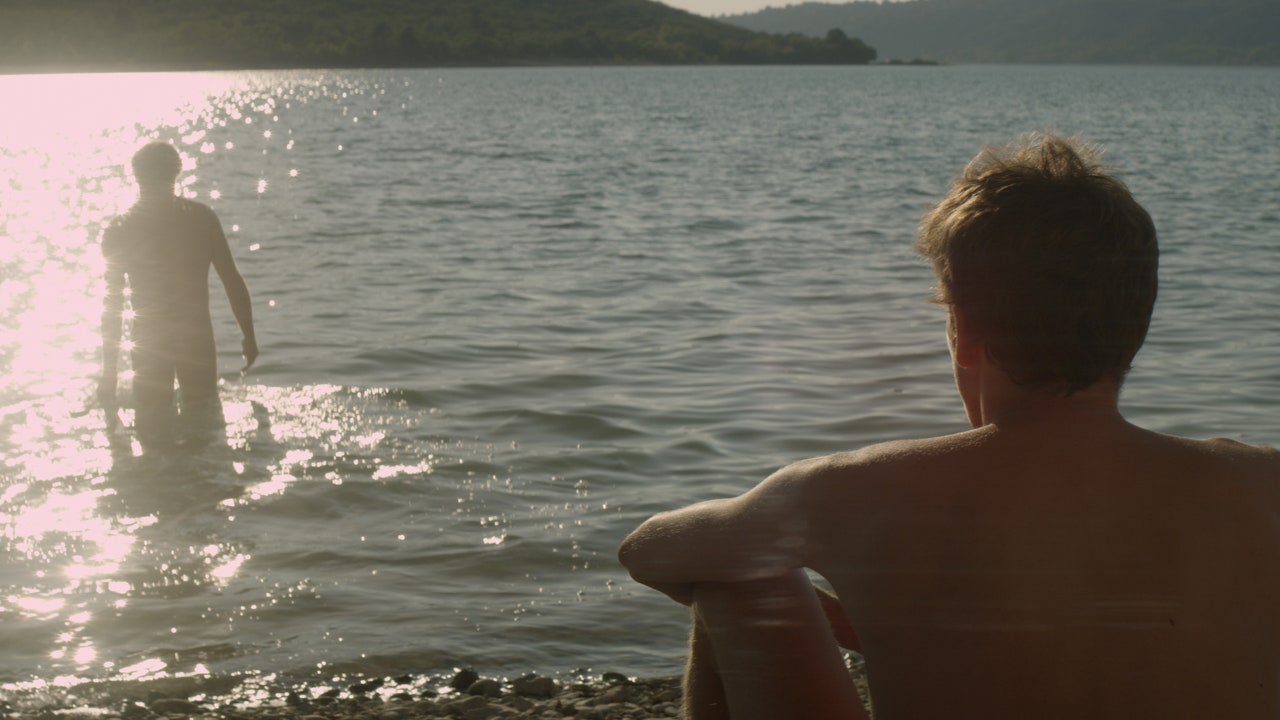Though not a summer time noir within the strict sense, this silent movie basic by German director F. W. Murnau is the urtext for all subsequent cautionary tales about summer time temptation. Because the opening intertitle reads: “For wherever the solar rises and units within the metropolis’s turmoil or beneath the open sky on the farm, life is way the identical; generally bitter, generally candy.”
The movie begins with a anonymous lady from town who visits the countryside for a summer time vacation. After some weeks of lazing about, she meets and seduces a married farmer whose boredom has left him dreaming of a greater life. Whereas the 2 lounge on the fringe of a lake, the girl, now his mistress, suggests to the person that he ought to drown his spouse in order that he can promote his farm and transfer away to town. As with many future summer-noir movies, the physique of water serves as a spot of ethical suspension, decadent daydreaming, and bodily hazard. The person agrees and takes his unsuspecting spouse on a shock boat experience. His plot, nevertheless, fails in mid journey, and the 2 find yourself touring on a tram from the nation to town, the place the person pleads for his spouse’s forgiveness. Collectively, they imbibe metropolis life for a day and rekindle their love. Then, on the journey again to the nation, a sudden storm overtakes their boat, and the spouse seems to drown. The person returns to the farm and, in a rage, makes an attempt to kill the mistress who has been ready for him. However the spouse reappears, having miraculously survived, they usually kiss simply because the solar rises over the countryside.
After practically a century, Dawn is a novel artifact of the silent period—extra a visible poem than a movie, simply as it’s recommended within the title. Whereas the black-and-white palette and chiaroscurist shadowing bear the entire nocturnal hallmarks of Expressionist and conventional movie noir, Murnau’s detailed consideration to altering landscapes (from metropolis to nation and farm to shore to lake) and setting (the cycle of day and evening, photos of thick fog, the sudden thunderstorm, the a number of sequences climaxing in daylight) has an atmospheric sensitivity that anticipates summer time noir’s personal emphasis on local weather and light-weight. And whereas its fairy-tale-like tone and comfortable ending finally remodel what begins as a summertime homicide plot right into a humanist allegory, it mustn’t distract from Murnau’s darker indictment of the risks of idle daydreaming and unique seductions, significantly these which mistake a vacationer’s fantasy for a house.


